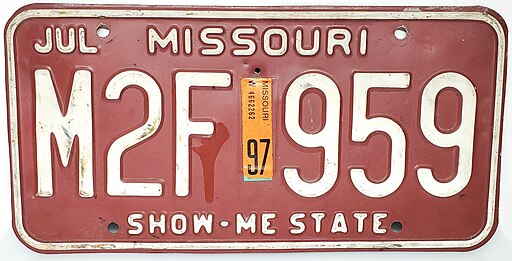
One perennial proposal in the ongoing “fight” (actually more a set of dueling theatrical productions a la professional wrestling) over “election integrity” is a requirement that voters produce official, government-issued identification documents, complete with photo, at polling places.
Anyone who’s ever worked door security at a nightclub (yes, I have) knows that possession of a card with a photo vaguely resembling the person possessing it is no guarantee of identity. And polling places have a built-in advantage over nightclubs: EVERYONE has to be on the guest list to get in.
Having individuals pretend to be voters when they aren’t doesn’t seem to be a real problem, if for no other reason than that it’s an incredibly labor-intensive way to fraudulently swing an election outcome.
In reality, the photo ID requirement drives seem to be more about making sure that only the “right” people — those who have the time and money to sit around government offices waiting for those very special cards — get to vote. There being, probably not coincidentally, a strong correlation between being one of those “right” people and possessing a skin tone that matches one of the lighter shades on the Pantone Matching System Color Chart.
But it seems to me that there’s room for a compromise here — a way to take the supposed concern seriously, and do something about it, in return for something that naturally follows from doing so.
Side A of this grand bargain proposal is simple: Give the “photo ID to vote” advocates what they want. You don’t get to vote without showing government-issued photo ID.
Side B is a little messier: Since photo ID is so important that it’s impossible to trust the results of an election not requiring it, all past elections not requiring it are deemed null, void, and of no effect. Every political official chosen in an election without photo ID requirements is automatically recalled, and every law passed by those officials — or by voters in a non-photo-ID election — is rescinded.
Yes, all of them, all the way back.
I have it on good authority that not a single member of the 1787 Constitutional Convention, or any of the legislators or convention delegates ratifying the Constitution, possessed government-issued photo identification documents.
How can we possibly know that the gentlemen purporting to be James Madison, Alexander Hamilton, George Washington, et al. weren’t just a gaggle of randos in borrowed wigs and waistcoats who fraudulently passed themselves off as the genuine personages?
If, as its advocates claim, photo ID is necessary to “election integrity,” we can’t trust that any past election was properly conducted or properly decided, and should therefore not consider ourselves bound by those elections’ results.
Your move, “election integrity” panic-mongers.
Thomas L. Knapp (Twitter: @thomaslknapp) is director and senior news analyst at the William Lloyd Garrison Center for Libertarian Advocacy Journalism (thegarrisoncenter.org). He lives and works in north central Florida.
PUBLICATION HISTORY
- “Photo ID to Vote? Well, OK, But …” by Thomas L. Knapp, CounterPunch, 01/14/22
- “Photo ID to vote? Well, OK, but …” by Thomas L. Knapp, Lake Havasu City, Arizona News-Herald, 01/14/22
- “Photo ID to vote? Well, OK, but …” by Thomas L. Knapp, Miles City, Montana Star, 01/14/22
- “Photo ID to vote? Well, OK, but …” by Thomas L. Knapp, Hammond, Louisiana Daily Star, 01/14/22
- “Photo ID to Vote? Well, OK, But …” by Thomas L. Knapp, OpEdNews, 01/15/22
- “Photo ID to vote? Well, OK, but …” by Thomas L. Knapp, Sidney, Montana Herald, 01/15/22
- “Photo ID to vote? Well, ok, but…” by Thomas L. Knapp, Kingsport, Tennessee Times News, 01/17/22
- “Photo ID to vote? Well, OK, but …” by Thomas L. Knapp, Marin, California Local News, 01/18/22
- “Photo ID to Vote? Well, OK, But …” by Thomas L. Knapp, Glasgow, Montana Courier, 01/19/22
- “Photo ID to Vote? Well, OK, But …” by Thomas L. Knapp, Kingstree, South Carolina News, 01/20/22
- “Photo ID to vote? Well, OK, but …” by Thomas L. Knapp, Dearborn, Michigan Press & Guide, 01/23/22
- “Photo ID to vote? Well, OK, but …” by Thomas L. Knapp, Sterling Heights, Michigan News-Herald, 01/23/22
- “Photo ID to vote? Well, OK, but …” by Thomas L. Knapp, Burlington, Colorado Record, 01/24/22
- Letter to the editor, by Dan Dinsmore, Kingsport, Tennessee Times News, 01/24/22


